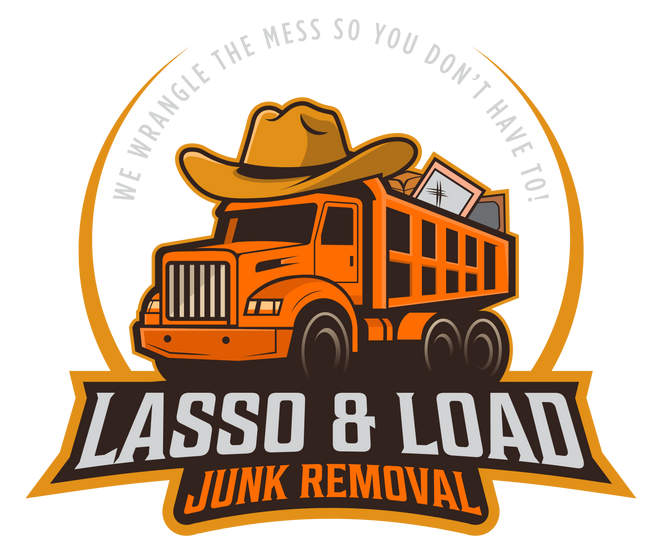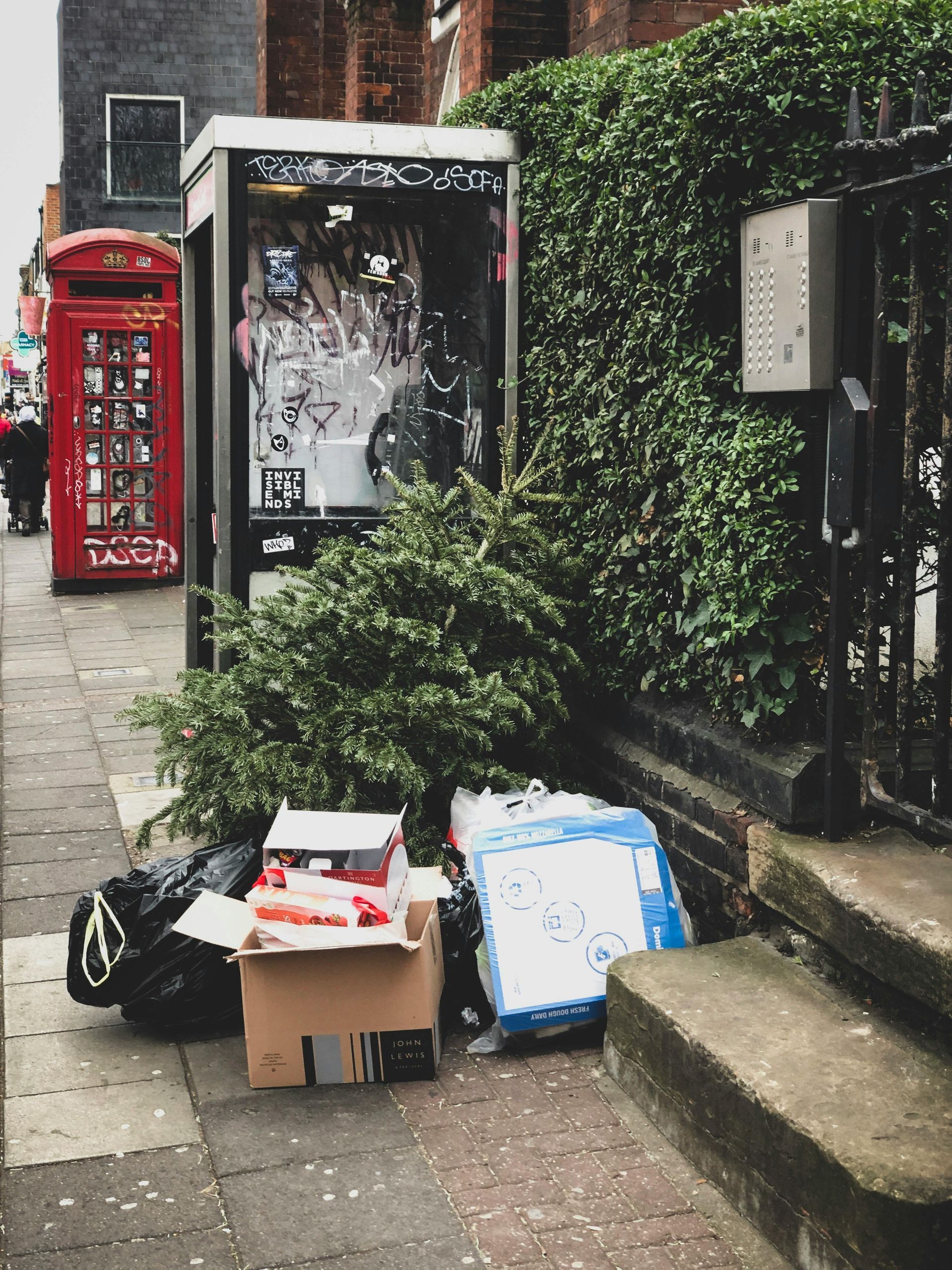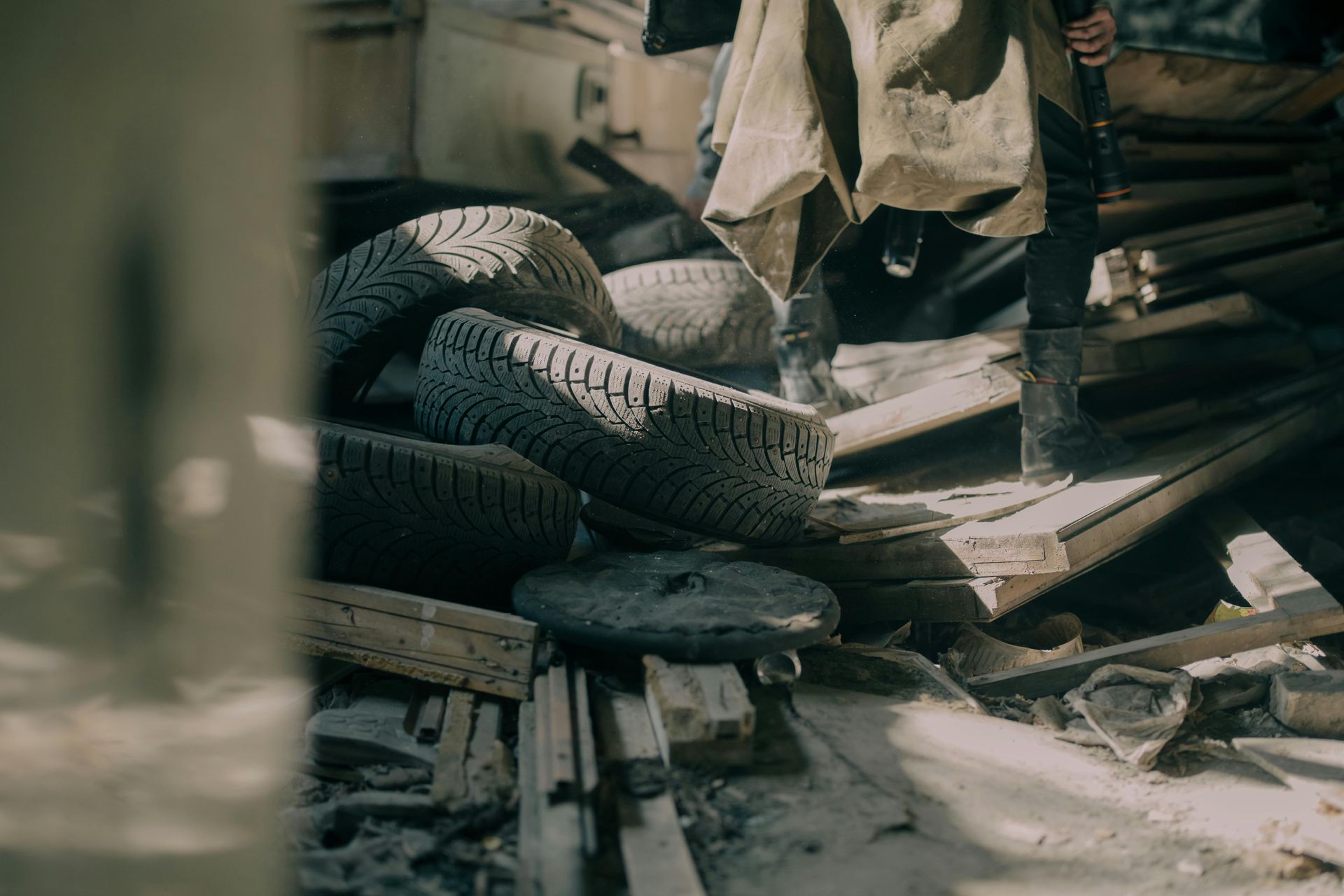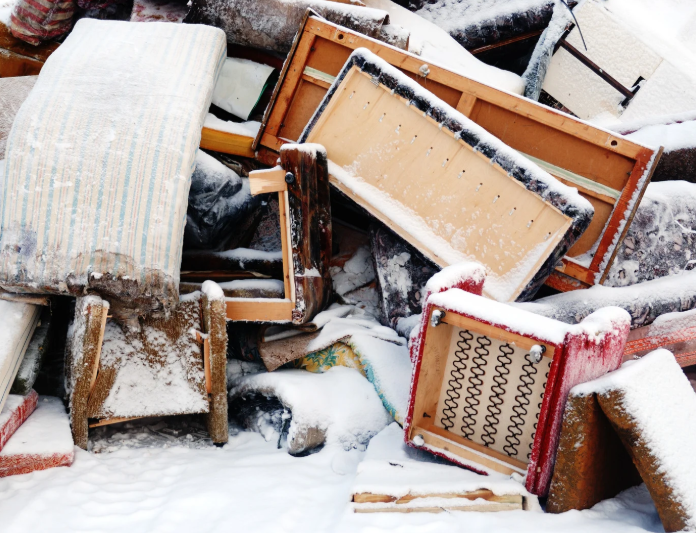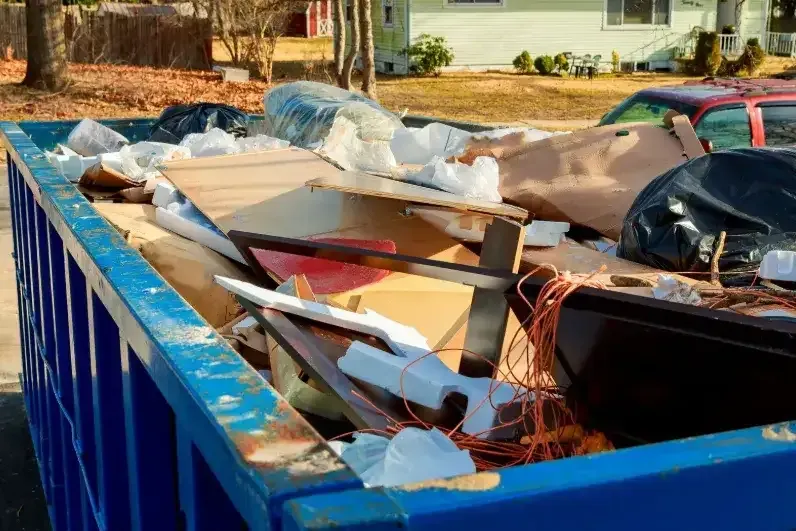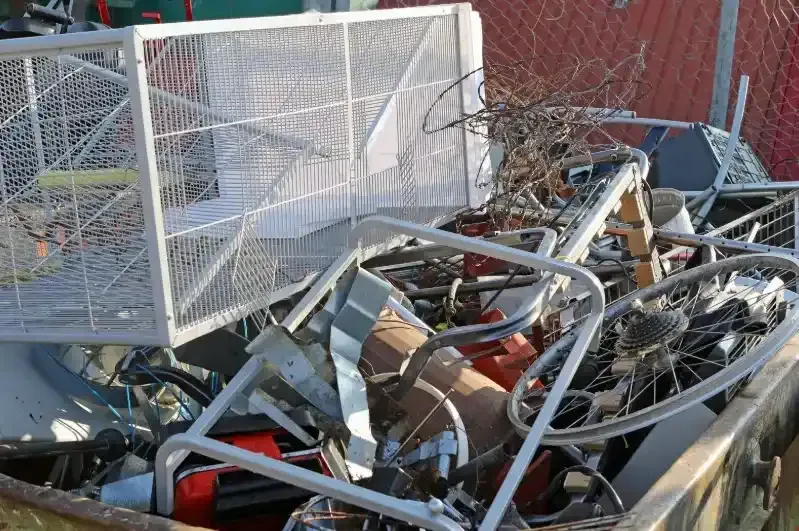How to Properly Recycle Electronic Items with the Help of Junk Removal
In an era where technology evolves at breakneck speed, our homes and offices often become unintended storage units for outdated gadgets. As newer models of smartphones, laptops, tablets, and printers emerge, older devices get pushed aside, accumulating dust in drawers or closets. These electronic relics, once essential, often sit unused and forgotten. However, their disposal is far from a simple task. Improperly discarding electronic waste can lead to hazardous environmental impacts.
Many electronic devices contain harmful chemicals, such as lead, mercury, and cadmium, which can leak into the soil and water supply when thrown away in regular trash. The improper disposal of e-waste can also lead to the loss of valuable resources, like metals and plastics, which can be recycled and reused. Therefore, adopting responsible e-waste recycling practices not only helps declutter our spaces but also plays a critical role in preserving the environment for future generations.
The E-Waste Conundrum
Electronic waste, or e-waste, refers to discarded electronic devices and components, such as old computers, phones, televisions, and other outdated gadgets. These items may seem like simple trash, but their environmental impact can be immense. According to the Global E-waste Monitor, the world generated approximately 53.6 million metric tons of e-waste in 2019, and this figure is expected to increase to 74.7 million metric tons by 2030. Alarmingly, only about 17.4% of this waste was formally collected and recycled.
The rest often ends up in landfills or incinerators, posing significant environmental risks. Improper disposal of e-waste can lead to the release of hazardous substances, such as lead, mercury, and cadmium, which contaminate soil and water sources, affecting ecosystems and human health. In addition to these dangers, valuable materials like gold, silver, and copper remain unrecovered in improperly disposed electronics, creating a missed opportunity for resource recovery and contributing to further strain on natural resources through mining.
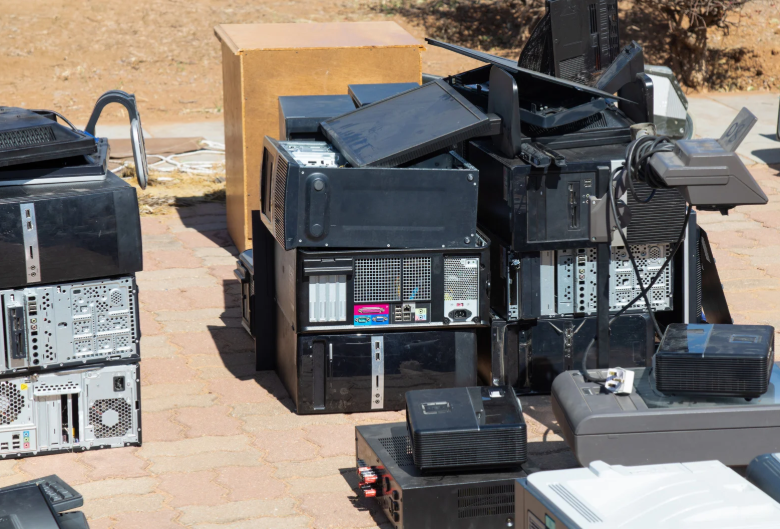
The Imperative of Proper E-Waste Recycling
Proper e-waste recycling is crucial in today's rapidly advancing technological landscape. As new devices continue to emerge, older electronics must be disposed of responsibly to minimize their environmental impact. E-waste contains harmful substances such as lead, mercury, and cadmium, which can seep into the soil and water, causing long-term damage to ecosystems and human health. By recycling electronics through certified e-waste programs, these hazardous materials are carefully managed, preventing contamination.
Additionally, e-waste often contains valuable materials like gold, silver, and copper, which can be recovered through recycling. This reduces the need for mining new resources, making e-waste recycling not only an environmentally responsible choice but also an economically beneficial one. Thus, ensuring the proper recycling of electronic devices helps protect our planet while simultaneously recovering valuable materials for future use.
Navigating the E-Waste Recycling Process
Embarking on the journey of responsible e-waste disposal involves several key steps:
- Inventory Assessment: Begin by identifying electronic items that are no longer in use or beyond repair. This includes devices like old computers, mobile phones, televisions, and kitchen appliances.
- Data Security: Before parting with devices that store personal information, ensure all data is thoroughly erased. Utilize data-wiping software or consult professionals to prevent potential data breaches.
- Determine Reusability: Assess whether the item is still functional. If so, consider donating it to schools, non-profits, or community centers where it can serve a purpose.
- Locate Certified Recyclers: For items beyond repair, seek out certified e-waste recyclers. Organizations like e-Stewards and R2 provide directories of responsible recyclers adhering to strict environmental and data security standards.
- Utilize Retailer Programs: Many electronics retailers offer take-back programs. For instance, Best Buy accepts a wide range of electronics for recycling, regardless of where they were purchased.
- Engage Professional Junk Removal Services: Companies specializing in junk removal can simplify the process by handling the collection, transportation, and proper disposal of e-waste.
- The Role of Junk Removal Services in E-Waste Management
- Professional junk removal services bridge the gap between consumers and recycling facilities, ensuring e-waste is handled responsibly. Their contributions include:
- Convenience: They offer scheduled pickups, saving clients the hassle of transporting bulky items.
- Expertise: Trained personnel can safely dismantle and sort electronic components, directing them to appropriate recycling streams.
- Compliance: Reputable services adhere to environmental regulations, providing clients with peace of mind regarding legal compliance.
- Community Impact: Some services collaborate with local charities, donating functional electronics to those in need.Real Simple
Embracing a Sustainable Future
The escalating e-waste crisis requires urgent and collective action to prevent further harm to the environment. With the rapid pace of technological advancements, the volume of discarded electronics continues to rise, contributing to a growing waste problem that threatens both local ecosystems and the planet. To address this, responsible recycling practices must be adopted by individuals, businesses, and governments alike. By choosing certified e-waste recycling programs and utilizing professional junk removal services, we can ensure that electronics are properly disposed of, preventing hazardous materials from leaching into the environment.
These services are equipped to handle a variety of e-waste items, ensuring they are recycled in a safe and sustainable manner. The commitment to sustainability through responsible e-waste management benefits not only our immediate surroundings but also the global community. Reducing e-waste and recovering valuable materials like metals and plastics can significantly lower the environmental burden, conserve natural resources, and contribute to a more sustainable future for generations to come.
The Growing Challenge of E-Waste
As technology continues to advance, the shelf life of many electronic devices seems to shorten with each passing year. New gadgets hit the market at a relentless pace, making older models feel outdated in a matter of months. This rapid turnover is contributing to a staggering increase in e-waste, which, if not properly managed, can have devastating environmental consequences.
In fact, the volume of e-waste is growing at a rate faster than any other waste stream. As per the Global E-Waste Statistics Partnership, this increase is primarily driven by the higher consumption rates of smartphones, laptops, and other personal electronics. Although most individuals understand the importance of recycling paper, glass, and plastic, e-waste often gets overlooked. Yet, this category of waste poses one of the most significant environmental threats due to its hazardous components.
Why You Shouldn’t Toss Electronics in the Trash
Throwing your old electronics in the trash is more than just irresponsible; it’s a potential violation of environmental laws in many regions. This is especially true when considering the hazardous substances that are commonly found in electronic devices. Items such as televisions, computers, smartphones, and other electronics often contain heavy metals like lead, mercury, and cadmium. These elements are highly toxic to both humans and wildlife and can easily leach into the environment when electronics are discarded improperly. Once in the soil, these chemicals can contaminate water sources, leading to long-term ecological damage and serious health risks, including neurological disorders and reproductive issues in humans.
In addition to being harmful to the environment, electronics are often composed of valuable materials that can be recycled. Materials like copper, gold, silver, and palladium are frequently used in the production of circuit boards and wiring. When electronics are sent to landfills, these precious metals go to waste. Recycling these materials instead of disposing of them can conserve resources, reduce pollution, and save energy—making e-waste recycling a critical practice in sustainable resource management.
Making the Right Choice: Professional vs. DIY E-Waste Disposal
While the idea of tackling e-waste disposal on your own might seem appealing, it's often a less efficient and less responsible option than enlisting the help of a professional junk removal service. The complexities of proper e-waste disposal can be overwhelming for the average person. Dropping off your old electronics at a local recycling center might sound like a simple solution, but many centers are not equipped to handle the specific needs of e-waste recycling. For example, large appliances, televisions, and certain batteries often have specific disposal requirements that standard recycling centers may not be able to accommodate.
Moreover, local recycling programs frequently have restrictions on what they will accept, and some types of electronics may not be accepted at all. This can lead to frustration and wasted time, especially if you have a variety of devices to dispose of. By hiring a junk removal service like Lasso & Load Junk Removal, you can ensure that your e-waste is disposed of properly. The team at Lasso & Load is trained to handle all types of electronics, from computers and televisions to large appliances and hazardous materials, and will ensure that your items are processed in the most eco-friendly way possible. With their help, you can rest assured that your e-waste will be disposed of responsibly and in full compliance with local regulations.
Conclusion
In the pursuit of decluttering and responsibly disposing of electronic items, partnering with a trusted junk removal service can be transformative. For residents and businesses in Gwinnett County, Lasso & Load Junk Removal is a reliable ally in this important task. Their efficient, eco-friendly services ensure that e-waste is handled with care and compliance, reducing the environmental impact of improper disposal. With a deep commitment to sustainability, they make it easy to clear out unwanted electronics while contributing to the preservation of the planet. Lasso & Load Junk Removal's expertise not only simplifies the process but also ensures that valuable materials are recovered and toxic substances are kept from harming our environment.
When you choose Lasso & Load Junk Removal, you’re opting for a responsible, sustainable solution to your e-waste challenges. Located in Gwinnett County, they offer professional services designed to meet your specific needs. For more information, contact them at 404-227-2017 or by email at Lauren.renwickk@gmail.com. Embrace the path to sustainability today—let Lasso & Load Junk Removal help you properly recycle your electronic waste and make a positive impact on the environment.
